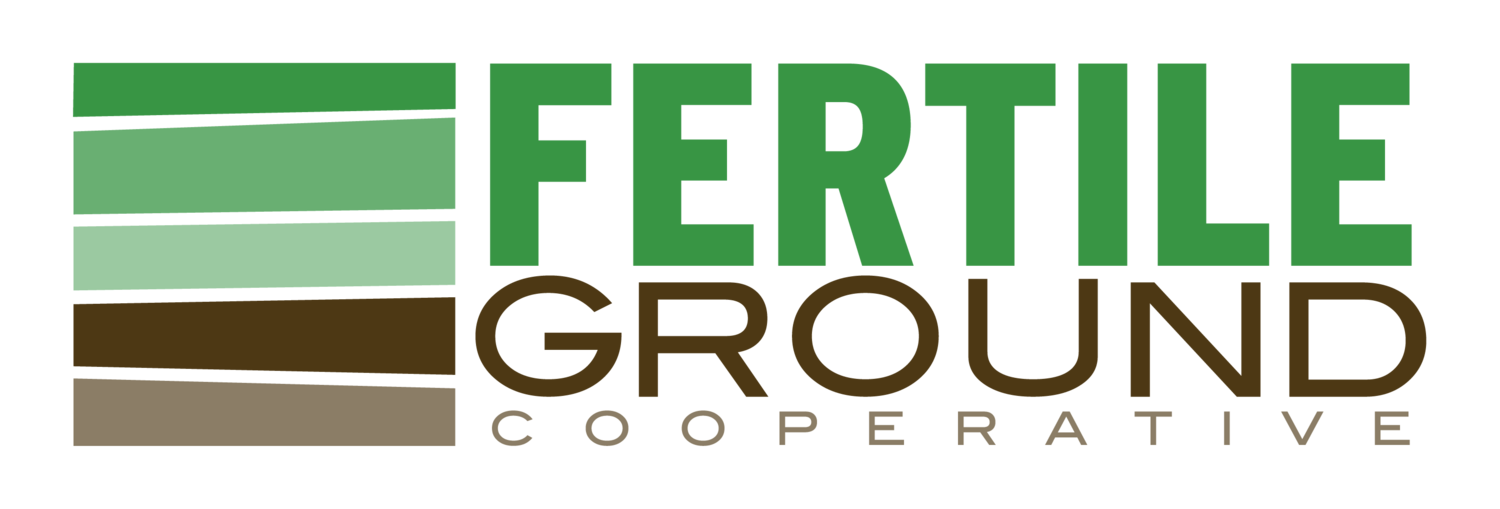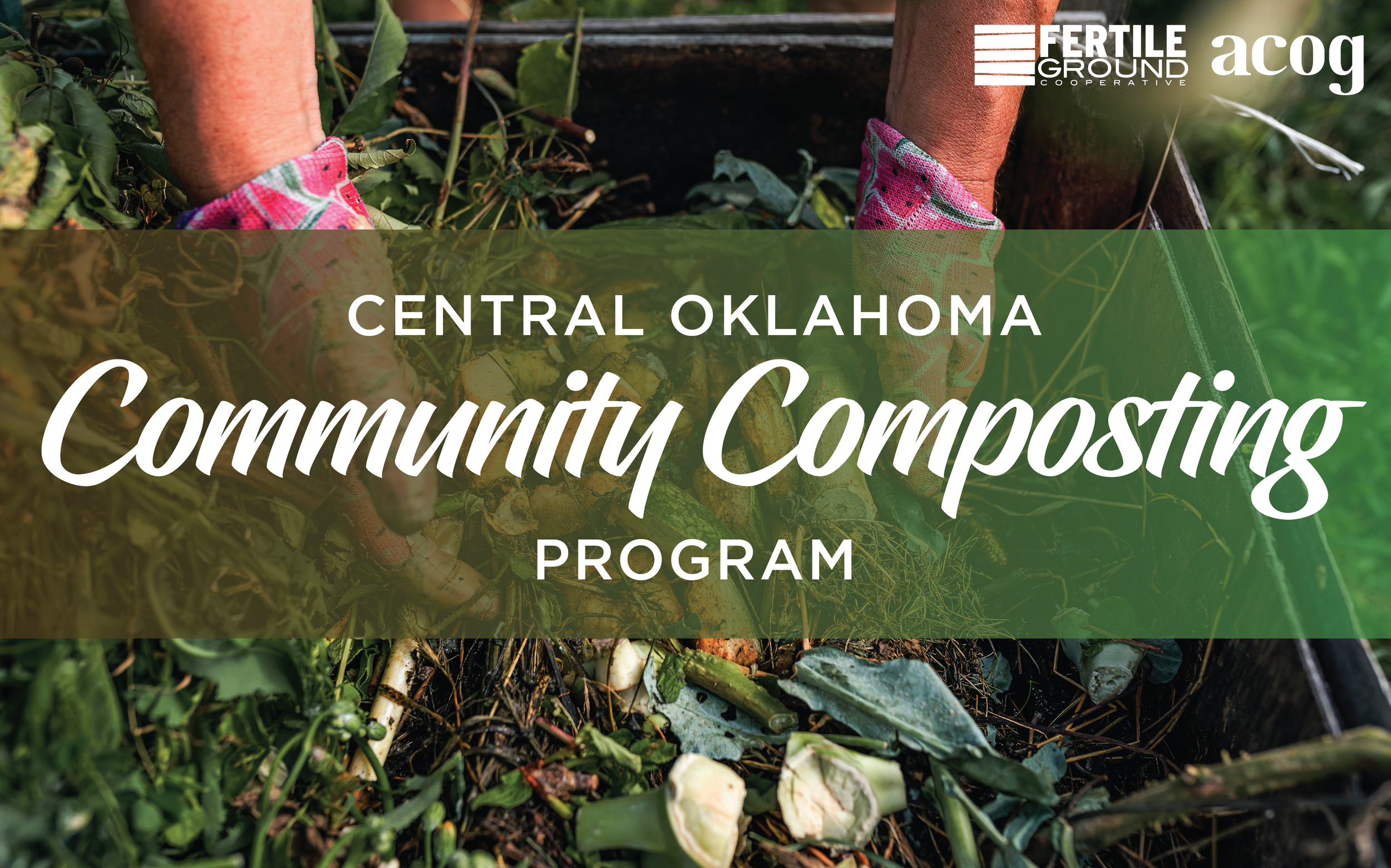Launching The Sustainable Future
LAUNCHING THE SUSTAINABLE FUTURE: CENTRAL OKLAHOMA’S COMMUNITY COMPOSTING PILOT PROJECT
The Association of Central Oklahoma Governments (ACOG) has been awarded funding from the U.S Department of Agriculture (USDA) to pilot a community composting program in the Central Oklahoma region.
ACOG is partnering with Fertile Ground Cooperative as the project’s sub-awardee to expand compost and food waste drop-off locations while providing finished compost products to farms, schools, local businesses, and nonprofits.
The USDA awarded approximately $11.5 million across 38 cooperative agreements, with recipients in 23 different states. The Composting and Food Reduction Program (CFWR) cooperative agreements demonstrated plans to divert food waste from landfills and create strategic partnerships.
ACOG and Fertile Ground plan to partner with the Oklahoma City Zoo, Oklahoma State University Extension, and other organizations to establish 20 new compost drop-off sites across the Central Oklahoma region. The pilot program will also include educational outreach, data collection, community participation, and development of waste reduction strategies.
40% of drop-off site investment will occur in underserved communities.
“USDA CFWR funding will provide Central Oklahomans more opportunities to compost and ACOG an opportunity to address regional solid waste challenges,” said Mark W. Sweeney, AICP, ACOG Executive Director. “Our sub-awardee Fertile Ground is an industry leader, with over a decade of experience in providing residential and commercial composting services to our community.”
In 2020, the City of Oklahoma City released adaptokc, its sustainability plan which found that the average Oklahoma City recycling customer sent 3,077 pounds of waste to landfills; more than double the 1,352 pounds of landfilled trash per recycling customer in Austin, Texas and 1,400 pounds more than the U.S. average of 1,635 pounds per person.
In terms of solid waste landfill diversion, Central Oklahoma is lagging behind peer regions like Dallas-Ft. Worth, Kansas City, and St. Louis.
As part of a 2023 ACOG Board Regional Visioning, local elected officials discussed the need to “initiate a regional approach to address the importance of landfill diversion through improved solid waste management focused on waste reduction, reuse, recycling, and composting.” Additionally, these elected officials commented on how “landfill capacity is maxing out, there are no optimal sites for future landfills, and the rising cost of solid waste services results in increased local fees to expand services.”
Board Vision action items included:
Securing grant funding and pursuing public/private partnerships
Educating businesses, industries, public and private organizations, schools, and citizens on solid waste management best practices
Developing a Regional Solid Waste Plan
“One of our deeply held values is the awareness that we live on a finite planet and that we have a responsibility to our children to leave the planet in a better place than we found it,” said Terry Craghead, Fertile Ground Founder and CEO. “It’s not enough to simply divert from the landfill. You have to help create a market for the finished product we’re diverting, build a more circular economy.”
The pilot program launch is planned for this summer.
https://www.acogok.org/launching-the-sustainable-future/

